From lockdown to freedom: a look back as covid19 restrictions fall
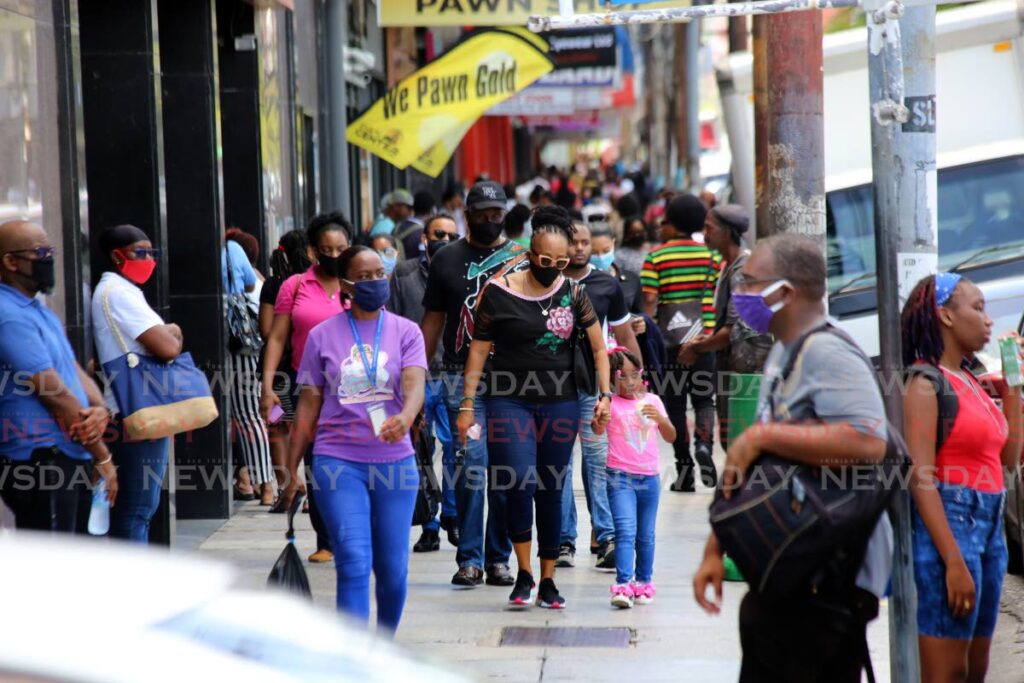
After almost two years of having to wear masks in public spaces, people can now breathe a sigh of relief as the mandate has been lifted.
The mandate, which came into effect in August 2020, was one of several measures implemented by the government to combat the spread of covid19.
The Prime Minister announced on July 2, 2022 that by mid-July, the wearing of masks in public will no longer be mandatory, meaning that people will not be liable to being charged by the police and fined $1,000 for the offence if found guilty.
On July 6, at a covid19 virtual press conference, Health Minister Terrence Deyalsingh clarified that the mandate would be lifted on July 17, with a caveat.
Under the ministry’s guidelines, which were issued via its website on Wednesday, masking will remain mandatory during visits to public health facilities.
It advised people to weigh their risks when deciding to unmask in certain situations and places, and recommended that the unvaccinated, who make up at least 49 per cent of the population, should still wear masks.
It added other groups, such as the immunocompromised, people at geriatric and children’s homes, those travelling in public transportation, and people attending religious services or generally congregating indoors with inadequate ventilation, should also follow suit.
He said the ministry felt the healthcare system would be able to deal with any spike in covid19 cases resulting from the lifting of this final restriction.
Some private companies have already noted that it would remain mandatory to wear masks at the workplace as a health and safety requirement while businesses such as supermarkets intend to continue its frequent sanitising and promote physical distancing among shoppers.
However, the lifting of the mandate is coming at a time when the World Health Organization (WHO) is recommending governments "return to face masks."
At a news conference in Geneva on July 12, WHO Director-General Dr Tedros Adhanom Ghebreyesus expressed concern about the continued rise in covid19 cases around the world and the resulting pressure on already stretched health systems and health care workers.
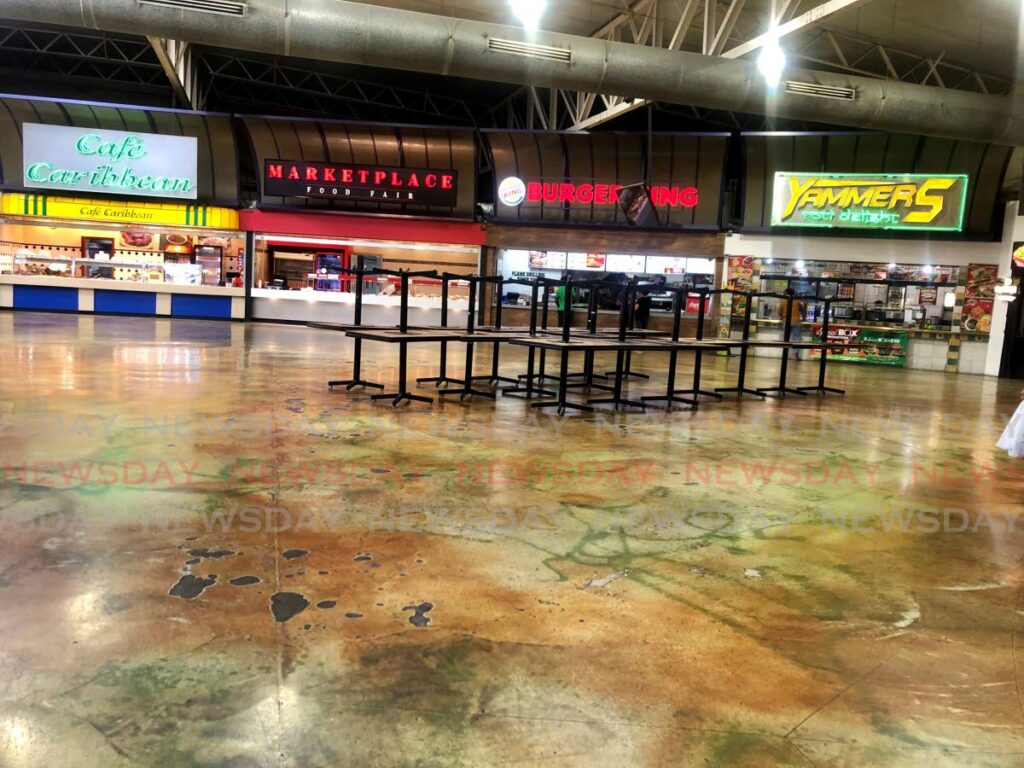
He said sub-variants of Omicron, like BA.4 and BA.5, were causing more cases, hospitalisation and deaths; surveillance, including testing and sequencing, was significantly reduced; diagnostics, treatments and vaccines were not being deployed effectively; and there was a major disconnect in covid19 risk perception between scientific communities, political leaders and the general public.
"As transmission and hospitalisations rise, governments must also deploy tried and tested measures like masking, improved ventilation and test and treat protocols. I urge governments to regularly review and adjust their covid19 response plans based on the current epidemiology and also the potential for new variants to appear."
TT, like many other countries, mounted a valiant fight against covid19 ever since it first came to the world’s attention in Wuhan, China, in December 2019. A market vendor was the first recorded case.
In fact, many would argue that the country’s current covid19 status reflects the measures implemented by the government even before the first local case was recorded.
Covid19 timeline
2020
January 30 – The Cabinet took the decision to impose travel restrictions on anyone who had been in China for a 14-day period before arriving in Trinidad and Tobago. Non-nationals would not be permitted entry and nationals or residents who fell into this category would be quarantined until it was clear that they were not affected by covid19.
January 31 – The proclamation of covid19 as a dangerous infectious disease under the Public Health Ordinance, Chap 12 No 4, in order to trigger the special provisions under the ordinance on curtailing and managing infectious diseases such as notifications, special inspections and offences.
February 27 – The Cabinet added Iran, South Korea, Italy, Singapore and Japan to the list of designated countries which, if non-nationals or residents had been in 14 days previously, they would not be allowed entry into TT.
March 11 – The World Health Organization (WHO) characterised the covid19 outbreak as a global pandemic. The Ministry of Health announced travel restrictions imposed with immediate effect on travellers from France and Germany. Non-nationals with travel history to those countries up to 14 days of travel to TT were not allowed to land. Nationals and permanent residents were allowed to land but were required to self-quarantine at home or at a facility for 14 days.
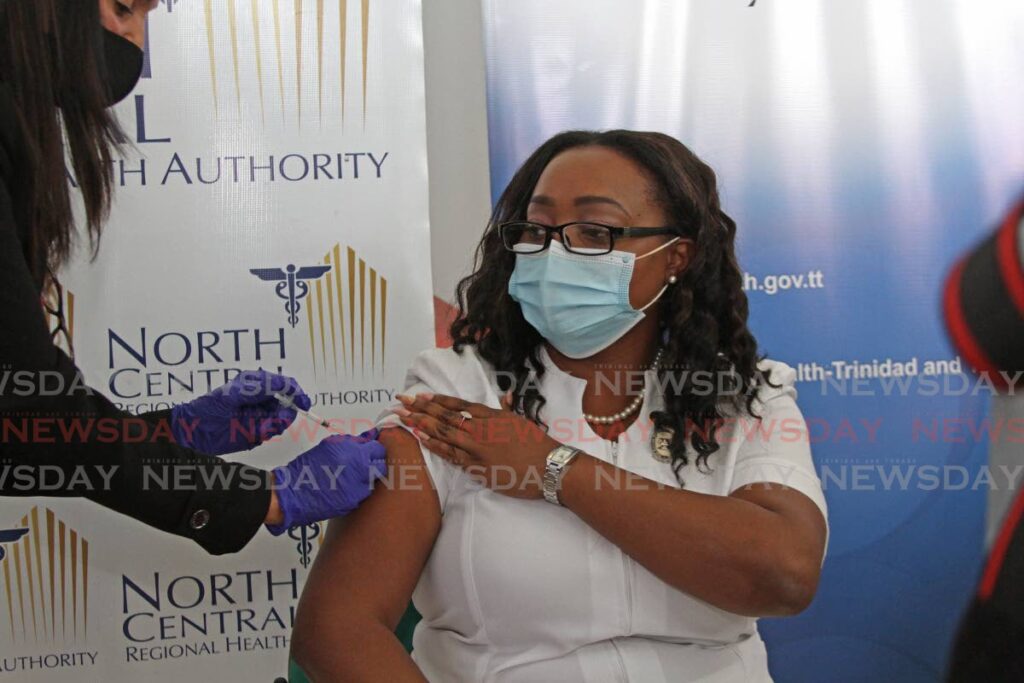
March 12 – Then Minister of National Security Stuart Young declared a ban on cruise ships; and the first recorded case of covid19 in TT was confirmed.
March 16 – The Prime Minister announced that all bars and schools were to close. Major exams such as the Secondary Entrance Assessment (SEA), Caribbean Secondary Education Certificate (CSEC) and Caribbean Advanced Proficiency Examination (CAPE) were postponed. Gatherings of over 25 persons were prohibited.
March 18 – PM Dr Keith Rowley announced access to the rivers and social gatherings were limited to ten people.
March 21 – Government announced the closure of the country’s borders to all nationals and non-nationals effective midnight on Sunday, March 22.
March 25 – The country’s first covid19 death was recorded.
March 26 – Rowley announced that non-essential workers were to stay at home until April 15. This was eventually extended to May 15.
April 5 – Tobago’s first recorded death was recorded.
April 6 – Government announced the extension of the stay-at-home order to April 30 and that all food outlets including restaurants, street vending, and curb side and deliver services were to be closed.
Also, the Public Health Ordinance was revised, with clear guidelines for opening hours of retail places such hardwares, electrical and plumbing stores, and supermarkets until April 30.
May 10-23 – Restaurants and roadside street vendors were allowed to reopen for business, but a ban remained on in-house dining. These businesses were to close by 8 pm.
Outdoor exercise was also allowed once more, but people were required to maintain the six-foot distance rule and not congregate. Three manufacturing businesses were allowed to restart: West Indian Tobacco Company, Trinidad Cement Ltd and Nu Iron.
May 24-June 6 – The Prime Minister allowed the reopening of the manufacturing sector and the resumption of public-sector construction. Public transport was allowed to operate at 50 per cent capacity.
June 7-20 – All public services were to resume; flexi-time and alternate-day office working were considered. Public transport was allowed to carry 75 per cent capacity.
July 31 – Government announced the number of people that can congregate would be reduced from 25 to ten due to the recent spike in cases.
August 15 – Chief Medical Officer Dr Roshan Parasram confirmed community spread of covid19 in TT. Also, Rowley announced new restrictions that would last for at least 28 days including no in-house dining at restaurants, the closure of beaches and rivers, gyms and places of worship.

August 31 – Government amended the Public Health Ordinance to institute a fine for anyone seen not wearing a face mask in public.
October 10 – Government announced a rollback on some covid19 measures including increasing the number of people who could gather at funerals from ten to 20 and allowing tours of the Caroni Swamp and Buccoo Reef to resume.
October 24 – Government made several adjustments to the Public Health Ordinance Regulations, effective October 26, including the opening of beaches and coastal waters, the entire Public Service would resume work, gyms would reopen at 50 per cent capacity, and guests at hotels and guesthouses were allowed to use onsite pools
November 7 – Government announced in-house dining at restaurants would resume but there would be no consumption of alcohol on the premises. Food would be allowed at cinemas which could operate at 50 per cent capacity, services at places of worship were extended to 90 minutes, Caribbean Airlines would increase flights to Tobago, and sporting teams engaged in national and international competitions could resume full activity. Also, Government announced that from November 15, those entering TT would have to provide a negative PCR test 72 hours before arrival.
November 21 – Government announced there would be no state-sponsored Christmas parties in the public sector, that the hunting season would reopen, and food services would be allowed in casinos.
December 5 – Government announced all schools across TT would open virtually on January 4, 2021.
2021
January 21, 2021 - The Ministry announced TT's first case of the UK variant of covid19, B117.
February 22 – People were allowed to engage in outdoor, recreational sporting activities involving 22 people or less.
April 2 – Indoor and outdoor recreational team sports were discontinued.
April 6 – The Office of the PM announced Rowley had covid19. Also, the first vaccination roll out began.
April 15 – In-house dining at restaurants, cinemas, casinos, and bars was discontinued; public gatherings were reduced from ten people to five; and all beaches were closed.
April 19 – TT recorded its first case of the Brazilian variant, P1.
April 21 – Until May 16, there was to be no public gatherings for entertainment or concerts; only ten people could attend weddings and funerals; public servants reverted to a rotation system for working from their offices at 50 per cent capacity; and places of worship were to operate at 25 per cent capacity.
April 29 – The PM announced the closure of several sectors, including bars, restaurants, malls, churches, gyms, casinos, cinemas and theatres.
May 4 – Only essential businesses were allowed to remain open from 6 am to 8 pm.
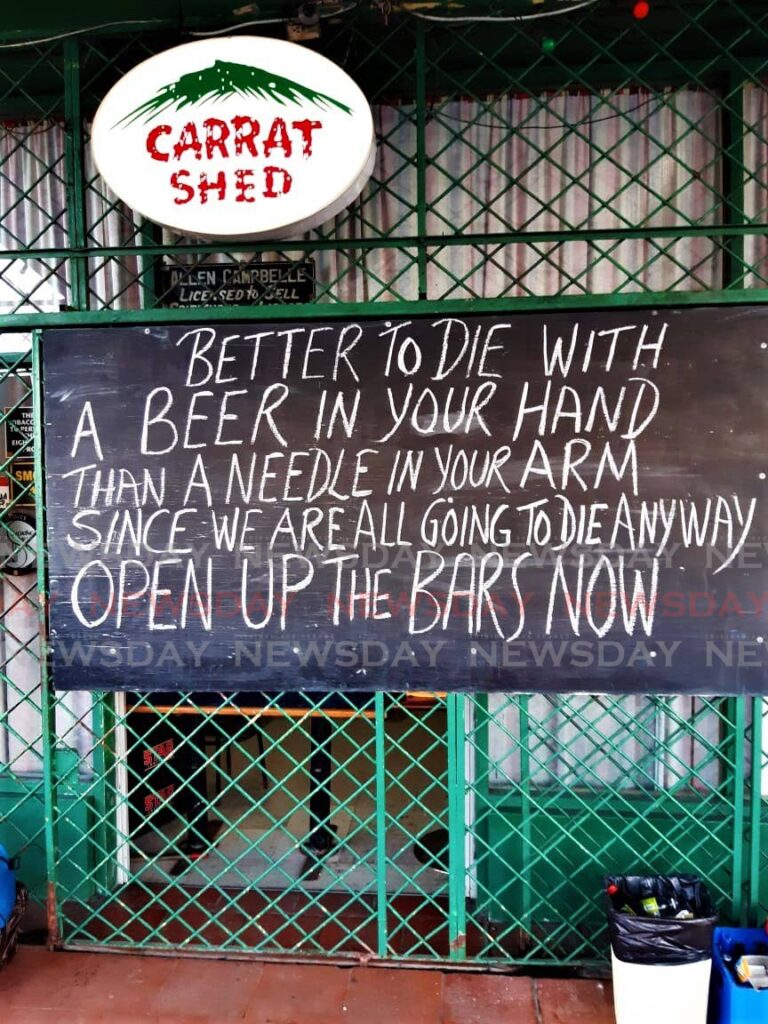
May 7 – The Prime Minister introduced stricter covid19 measures to stop the spread of the virus. He announced the restriction of movement as well as non-essential activity.
May 15 – Government implemented a state of emergency (SoE) and a 9 pm to 5 am curfew. The SoE was extended for a further three months, to end, tentatively, in August.
June 5 – PM announced weekend curfews from Friday to Monday, 7 pm to 5 am.
July 5 – The construction sector and laundromats were allowed to reopen.
July 12 – Car dealerships and manufacturing companies reopened.
July 14 – The TT Travel Pass platform was launched.
July 16 – The government updated its quarantine protocols for those entering the country. Those not fully vaccinated would spend 14 days in state-supervised quarantine.
July 17 – Borders reopened for vaccinated and unvaccinated nationals, as well as vaccinated non-nationals with a negative PCR test 72 hours prior to entering this country. Non-nationals who were unvaccinated were barred from entering TT at the time.
July 19 – Outdoor activities up to five people, as well as curbside, take-out and delivery services at restaurants and other food establishments, including street food, resumed.
July 20 – TT recorded 1,000 deaths.
August 9 – NLCB booths reopened.
August 11 – TT confirmed its first two cases of the delta variant.
August 23 – Domestic workers, personal services and real estate services reopened.
August 31 – TT reached its initial goal of having 188,000 people fully vaccinated against the covid19 virus.
September 3 – The PM announced the sea bridge capacity would be expanded from 50 to 75 per cent, and arrangements would be made to increase the number of flights on the air bridge.
September 6 – Schools reopened virtually. Also, in-person religious meetings or services were allowed to restart at 25 per cent capacity and services must be under one hour; christenings and baptisms in person could not exceed ten people or one hour.
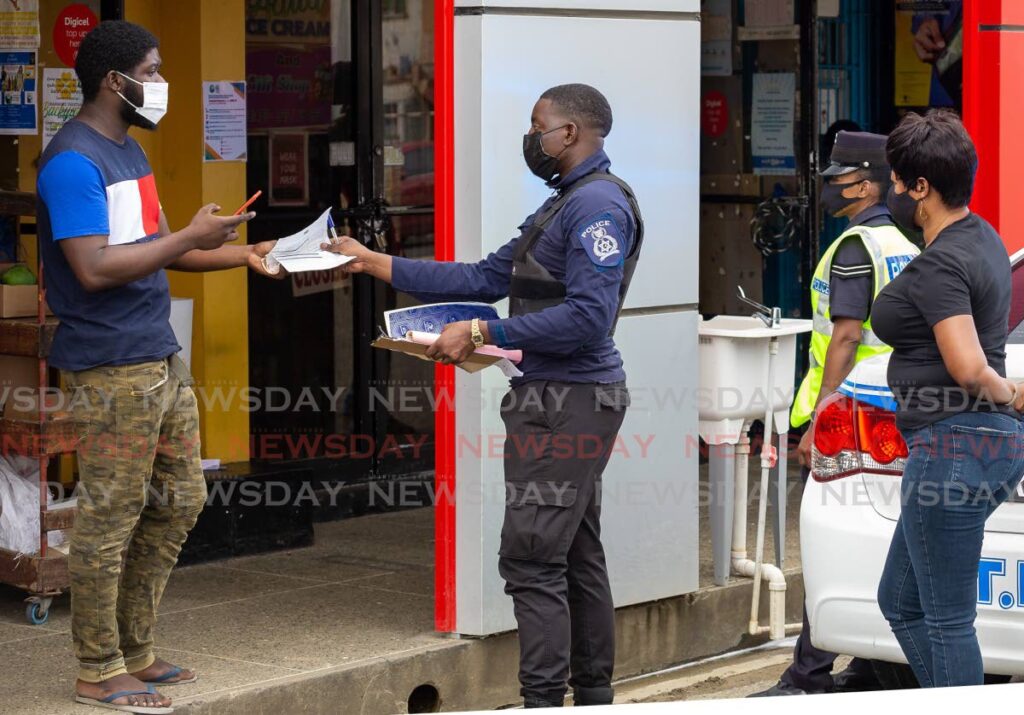
September 27 – Curfew hours were adjusted from 9 pm to 5 am to 10 pm to 5 am.
October 4 – Budget day. Also, physical school reopens for vaccinated secondary school students in forms four to six.
October 11 – Government started its TT Safe Zone initiative, which saw the reopening of bars, restaurants, cinemas and other spaces to vaccinated people.
October 16 – PM announced the resumption of horse racing for vaccinated people; the legal number of people allowed to attend a public gathering would be increased from five to ten; and the length of religious services could be extended to 90 minutes at 25 per cent capacity.
October 25 – All students of forms four to six or equivalent, regardless of vaccination status, were required to attend school physically.
November 1 – Restaurants, bars and casinos were allowed to serve alcohol in their establishments at 50 per cent capacity to vaccinated customers, and public servants went back out to physical work.
November 13 – Rowley announced public pools, for therapeutic use, would be included as safe zones; places of worship could increase capacity from 25 to 50 per cent; and the number of people allowed at gravesides would be increased from ten to 25.
November 17 – SoE ended at midnight.
November 24 – TT crossed 2,000 covid19 deaths from covid19-related complications with 11 deaths for a total of 2,009.
November 26 – Government issued a travel ban on eight African countries after the emergence of the highly transmissible omicron variant. That ban was lifted on December 19.
December 13 – TT recorded its first case of the omicron variant, which entered the country on December 9.
December 20 – Beaches reopened between 5 am and 12 pm, but no alcoholic beverages, no loud music or partying, and no congregating were allowed. Rivers, ponds and waterfalls remained closed.
December 24 – TT recorded its highest death toll in a day, 37.
2022
January 6, 2022 – Public servants trickled into vaccination sites ahead of the government’s deadline of January 14 in a move to make public-sector offices safe zones.
January 7 – TT crossed 3,000 covid19 deaths with 18 deaths for a total of 3,010.
January 13: Government lifted ban on open-pyre cremations for covid19 deaths. It was banned in early 2020 after the first local case was detected.
January 15 – PM announced the extension of vaccination deadline for public-sector workers to February 17. Also, the PM appointed five-member medical team to examine the level of care in the country’s healthcare system, including covid19 deaths, and report to the government.
January 17 – Rivers reopened for public use and opening hours of beaches extended to 2 pm. Also, the Tourism Ministry announced Caroni boat tour operators could resume tours at 50 per cent capacity from 5am to 2pm.
January 19 – Government announced its approval for Carnival-type events to be held at approved venues for the vaccinated.
January 26 – Beach opening hours were extended from 5 am to 6 pm, including reef and swamp tours at 50 per cent capacity.
February 7 – Standard five, and forms one to five students returned to physical school.
February 19 – Government announced unvaccinated children under 12 were allowed into safe zones, but must be accompanied by vaccinated adults. TT reached its vaccine milestone of having 50 per cent of the population fully vaccinated against covid19.
February 21 – Beaches and rivers were fully opened.
March 4 – In the House, the PM said government was no longer pursuing legislation that could be viewed as making covid19 vaccination mandatory for public-sector workers.
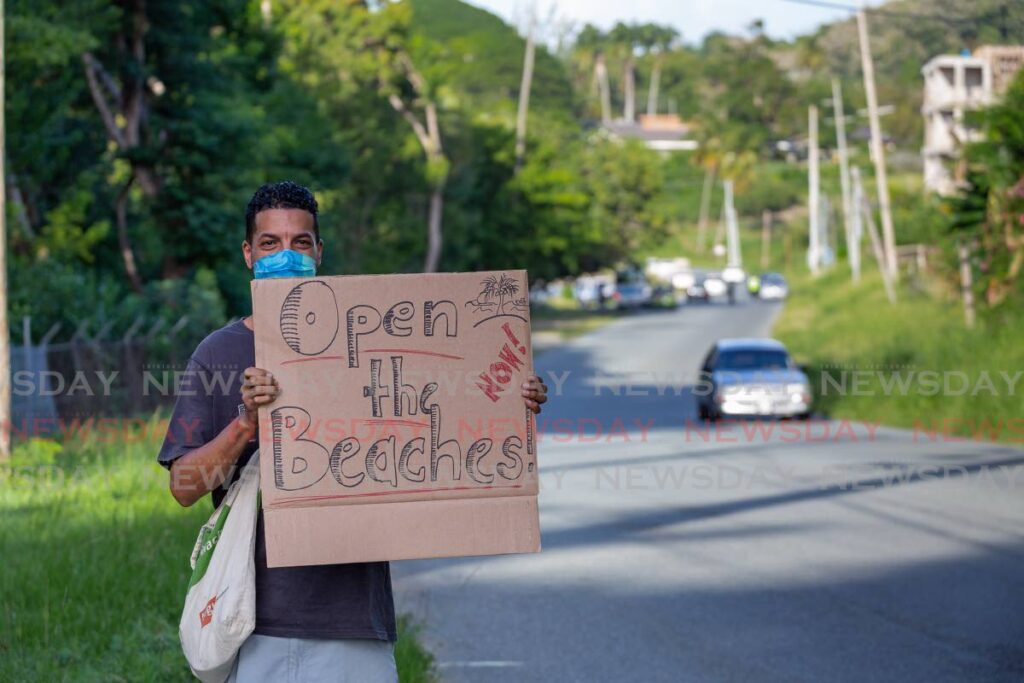
Also, Rowley announced:
- Families travelling in private vehicles and private marine vessels can be unmasked.
- Increased numbers of people at religious services and graveside funerals.
- Increased length of religious services
- Public gatherings of 25 people allowed
- Public transport may operate at 100 per cent capacity.
- Establishments designated as covid19 safe zones can operate at 75 per cent capacity.
- Return of team and contact sports.
- Decreased national quarantine (for contacts of positive cases) from 14 to ten days.
- Unvaccinated nationals returning to TT have a reduced quarantine from 14 to seven days.
- Gradual de-escalation of the parallel health care system.
March 5 – Deyalsingh announced the decommissioning of the parallel healthcare system, which began with the Point Fortin Hospital was handed over on March 14.
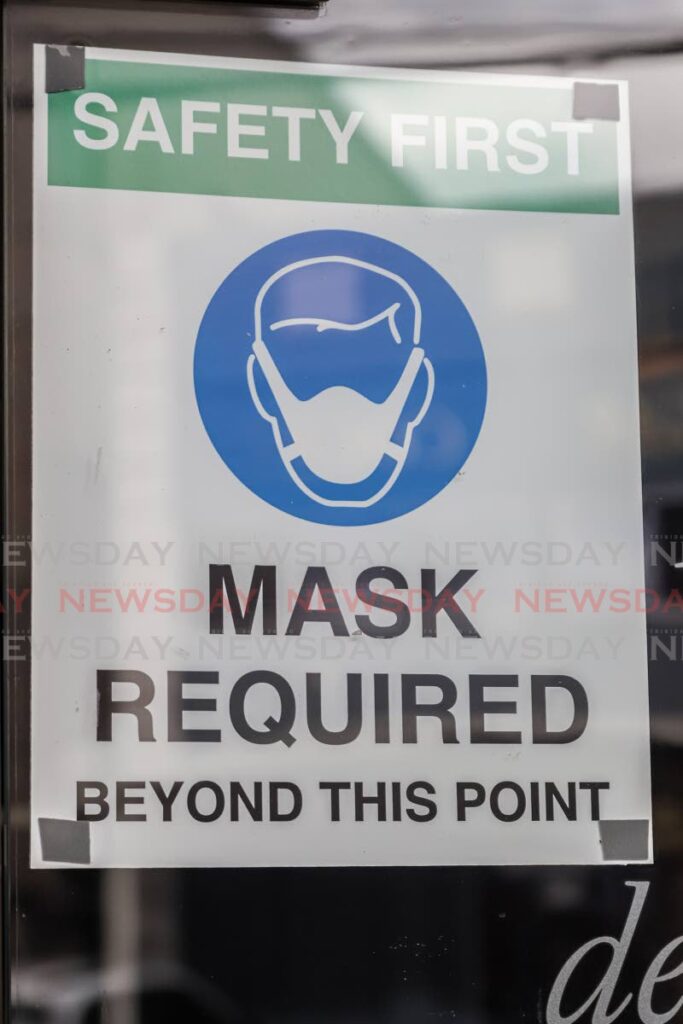
March 7 – All public servants back out to work. Children were allowed to attend day-cares, and in-person attendance of form one to six secondary school students, standard five primary school students and other students of equivalent grades/years.
April 4 – All restrictions, except mask-wearing in public spaces, were rolled back.
April 19 – The full return of all students to physical school at the early childhood care and education (ECCE), primary, secondary and tertiary levels.
June 1 – The TT Travel Pass system was discontinued.
June 25 – TT reached a total of 4,000 covid19 deaths.
July 1 – A negative covid19 test was no longer required to enter TT.
July 2 – PM announced masks in public would no longer be mandatory by mid-July.
July 4 – Covid19 hospitalisation dropped below 100 for the first time since April 21, 2021.

Comments
"From lockdown to freedom: a look back as covid19 restrictions fall"